Bio-mitigation based on integrated multi-trophic aquaculture in temperate coastal waters: practice, assessment, and challenges
Submited: 2018-03-22 10:08:49 | Published: 2019-05-02 15:28:27
DOI: https://doi.org/10.3856/vol47-issue2-fulltext-1
Abstract
In general, aquaculture wastes from traditional aquatic organism cultivation rapidly deteriorate the water quality of the surrounding ecosystems, endangering animals living in the area. The integrated multi-trophic aquaculture (IMTA) system is a bio-mitigation strategy to alleviate the adverse impacts caused by aquafarming pollutants on the environment and aquatic species. This study provides an overview of the IMTA system, explains the interactive processes among the different trophic levels, summarizes the major practices being followed around the temperate coastal waters with a field case study in Japan, and discusses the assessment of IMTA bio-mitigation efficiency through experimental greatly dependent on the customs and market values in the local IMTA practice. Bio-mitigation efficiency acquired in a land-based experiment exhibits its limitation in approach and conducts a comprehensive analysis on the possibility of applying numerical models to evaluate IMTA effectiveness. The selection of a suitable candidate organism is estimating that in the same or different culture conditions with various biomasses of extractive species. However, in open water experiments, it is difficult to evaluate the bio-mitigation effect of extractive species because the initial biomass ratio (IBR) of the extractive to target species is too small. Alternatively, the possibility of applying existing numerical models to assess IMTA is relatively low. In conclusion, an optimally designed large-scale IMTA experiment is required, in which the IBR of the extractive to target species is adequately considered, and a full-scale IMTA model should be further improved with a database of individual-based submodels for IMTA candidate organisms.


